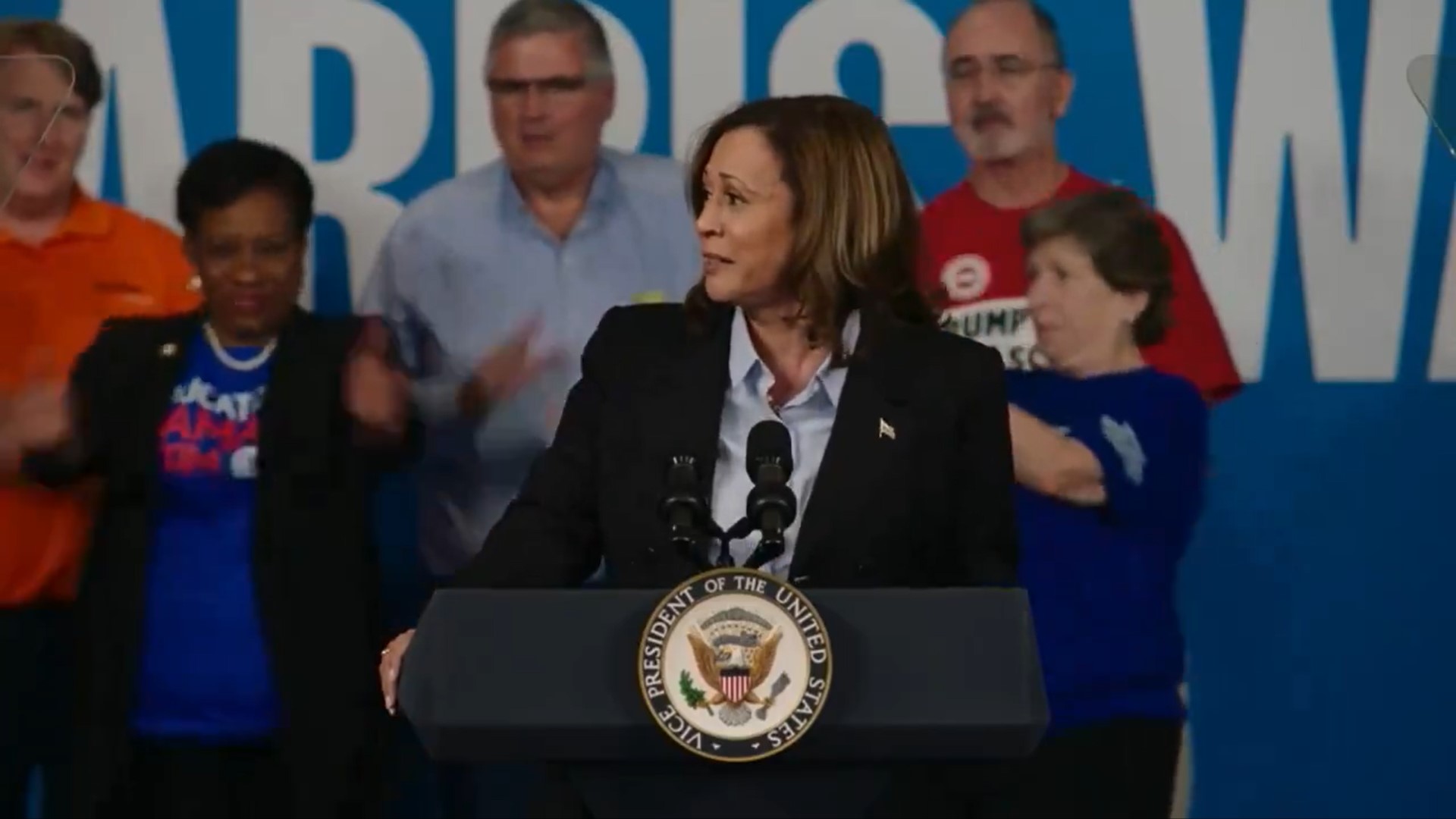Kamala Harris recently made headlines with her speech at a Detroit rally, where she adopted yet another accent, sparking discussions about authenticity in political communication. This isn’t the first time Harris has altered her accent; it’s becoming somewhat of a recurring theme in her public appearances. During the Detroit event, Harris spoke with an accent reminiscent of a soul preacher, emphasizing the contributions of union members with phrases like, “You betta thank a union member for sick leave.”
The context of the accent change during her speech centered around organized labor, a topic resonant with her audience. However, the shift in her speaking style has drawn mixed reactions from the public and media alike. Critics argue that such alterations in her accent can come across as inauthentic, potentially undermining her credibility. On social media, users were quick to point out the disparity between her usual speaking style and the accent used at the rally, questioning the sincerity of her message.
WATCH: Over 3 minutes of Kamala Harris using different phony accents throughout the years.
Despite spending her childhood in Berkley, California and Montreal, Canada, Kamala uses what she thinks is a Detroit accent, what she thinks a southern accent in Georgia, a French accent,… pic.twitter.com/A07WzWMGkr
— Steve Guest (@SteveGuest) September 2, 2024
Kamala in Detroit vs. Kamala in Pittsburgh — literally 5 hours apart
The difference is insane pic.twitter.com/ZPXXr2BHe7
— johnny maga (@_johnnymaga) September 2, 2024
This isn’t an isolated incident. In past speeches, Harris has been noted for adopting different accents tailored to her audience. For instance, during a recent campaign stop in Georgia, she was heard using a southern drawl, declaring, “And you all helped us win in 2020, and we gon’ do it again in 2024.” Her attempts at accent modification have been seen in other contexts as well, such as addressing voters ahead of the Georgia Senate runoff elections in 2020, where she employed a similar southern cadence.
The media’s coverage of these accent changes has varied, with some outlets critiquing her for perceived pandering, while others have defended her as connecting with diverse audiences. The underlying question of authenticity in political communication becomes central. In an era where voters increasingly value authenticity, any perceived lack of genuine connection can have significant implications for a politician’s image.
Harris’s accent shifts ignite a broader conversation about how elected officials communicate with different demographics. On one hand, adapting one’s speech to resonate with an audience could be seen as a strategic attempt to build rapport and convey empathy. On the other, it risks being perceived as disingenuous, especially if the changes appear forced or inconsistent.
These discussions about Harris’s speech patterns highlight the delicate balance politicians must maintain between relatability and authenticity. As public figures navigate diverse cultural landscapes, their communication strategies are scrutinized not just for content, but for the manner in which messages are delivered. This ongoing debate about authenticity underscores the complex dynamics of political communication in a multicultural society.


Leave a Comment